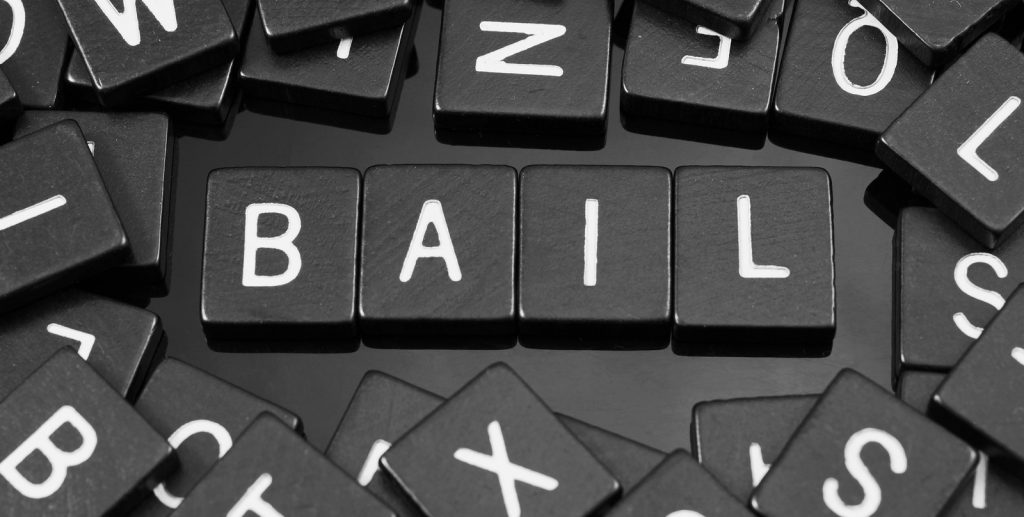Navigating the world of bail bonds can be a confusing and daunting task, especially for those who are unfamiliar with the terminology. From understanding what a bail bond is to determining how much it will cost you, there are many questions that need answers. To help make this process easier, here’s a guide on understanding common bail bond terms so that you can better manage your financial situation and ensure your loved one is released from jail as soon as possible.

Bail Bond Glossary Terms You Need to Know
Taking on the responsibility of cosigning for a bail bond is not something that should be taken lightly. It is a legal and binding agreement, not to be entered into without serious thought. When you cosign, it means putting your name and reputation on the line as a show of support for the person being released. You are essentially becoming guarantor for their performance even if they break the rules of their release stipulated by the court as part of bail conditions. As such, it follows that you must do all due diligence when considering whether this is an arrangement that you wish to embark on in order to ensure you are making an informed decision appropriately. This includes having a basic understanding of common bail bond terminology.
Here are the most important bail bond glossary terms you need to know:
Bail Bondsman: A bail bondsman is a person who provides the financial guarantee for an individual to be released from jail. The bondsman will post the required bond amount, usually a percentage of the total bail amount, with the court in exchange for your loved one’s release.
Bail: This is the total amount of money required to be paid to the court in order for your loved one to be released from jail. The amount is typically set by a judge and will depend on the severity of the crime committed.
Premium: The premium is what you will be charged by the bondsman to cover their costs and services in providing surety for your loved one’s release. This typically amounts to about 10-15% of the total bail amount.
Surety Bond: A surety bond is an agreement between the person providing bail (you) and the bondsman that guarantees repayment if you are unable to meet certain obligations. It also binds both parties together until all requirements have been met.
Cash Bond: A cash bond is essentially an amount of money that can be paid in order to settle the charges and proceed outside of the criminal justice system. Usually, this involves money posted by either the accused or somebody else on their behalf. Ultimately, having a cash bond paid out will result in being able to leave jail as soon as administrative paperwork has been completed.
Collateral: In some cases, a collateral may be requested by the bondsman as added security that they may use if you or your loved one fails to meet certain requirements. Collateral may include money, real estate, jewelry, or other valuable items.
Indemnitor: An indemnitor is someone who agrees to be financially responsible for another party’s obligations or debts if they fail to pay. This person is usually a close relative or friend of the person in jail. This person would be you.
Talk to an Indianapolis Bail Bondsman to Learn More
These are just some of the common terms associated with bail bonds that you will likely come across during this process. Knowing these terms and understanding what they mean can make the entire experience much easier to navigate and manage, saving you time, money, and stress in the long run. If you’re ever unsure about anything related to bail bonds, don’t hesitate to reach out to your local bondsman for assistance. They will be able to provide clarity on any questions or concerns you have. Ultimately, having an understanding of basic bail bond terminology is an invaluable tool when it comes to managing your financial situation while also ensuring your loved one is released from jail as quickly and safely as possible.
Summary
This blog post was written to help educate those who are unfamiliar with bail bond terminology. It provides a brief overview of the key terms associated with the process, including bondsman, premium, collateral, bail, surety bond, and indemnitor. With this knowledge in hand, you’ll be better equipped to understand any conversations you have with your local bondsman or court officials. That way, you can ensure that your loved one is released from jail as soon as possible without having to worry about financial difficulties or potential legal ramifications down the line. We hope this guide has been helpful in providing some clarity around common bail bond terms!
Are you in need of quick and helpful emergency support to bail yourself or someone out of jail in Indiana? Contact Woods Bail Bonds at 317-876-9600 for fast and secure bail bond service in Indianapolis and its surrounding counties. We also offer pre-arranged bail for arrest warrants.
Related Posts:
Understanding Financial Obligations When Posting Bond
Basic Bail Bond Terms For First Timers
Standard Bail Bond Terms and Conditions in Indiana


